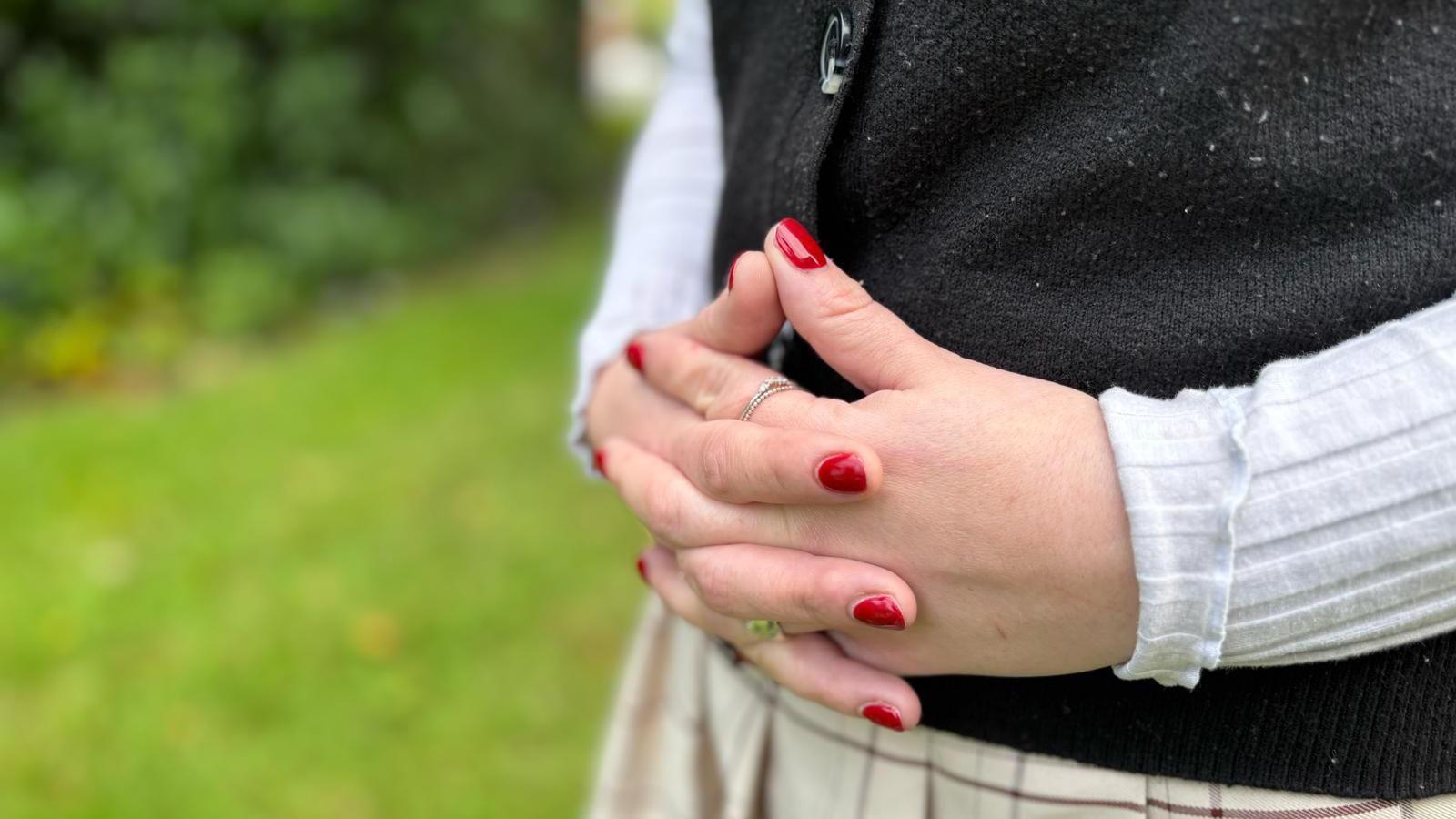'No remorse': sexual assault survivor faces attacker

Chloe was 18 when she was assaulted by taxi driver Paul Bryan in 2017
- Published
A young woman who was sexually assaulted by a taxi driver as she came home from a night out has said she saw "no remorse" when she faced her attacker in court.
Chloe, who was 18 at the time of the assault in 2017, was collected by Paul Bryan in his taxi in Letterkenny, County Donegal after becoming separated from friends.
Bryan, 63, from Newtowncunningham, County Donegal, admitted to two counts of sexual assault and was sentenced to four years, two in prison and two on license, last week at Londonderry Magistrates' Court.
Chloe, from Derry, told BBC News NI there needed to be tougher sentences for sex offenders.
As he was sentenced, Chloe said there was "not a single sorry, not a hint of remorse".
She said she has decided to speak publicly as a survivor, and hopes others who have faced the same trauma will come forward.
"It has changed my life completely," she said.
"I didn’t leave my house for a few years after the attack because I was petrified... now I am trying to learn that not everyone has hurt in their heart for people.
"It’s been very hard."
Chloe added: "Life has changed. I have become stronger, become the woman I want to be, to petition for change.
"But in terms of a victim, I am still in that taxi on that night, nothing has changed there."
Chloe described the sentence handed to her attacker as "a joke".
"He has two years in jail. I spent three times that waiting to find out what would happen, being called an alleged victim for seven years."
The office of the Lady Chief Justice (LCJ) Dame Siobhan Keegan, Northern Ireland’s most senior judge, said in a statement: "The sentence imposed will depend on the specific circumstances in each case and a wide range of different factors will be considered."
The Public Prosecution Service (PPS) said it recognised "all parts of the criminal justice system can move slowly due to a variety of cross-system factors".
It said it is "currently considering" whether there is a basis to refer the sentencing in Bryan’s case to the Court of Appeal for review.
Chloe said she can’t remember the full assault by Bryan.
"I just remember trying to get home – I was scared, I remember waking up to Bryan over the top of me for about three or four seconds," she said.
"Sometimes you think of going to sleep just to escape everything, I can’t escape anything when I am asleep, I still remember, feel what happened."
'No one deserves to live the life I have'
On the night of the attack it was her mother who first called police.
She was taken to Northern Ireland’s only rape crisis centre in Belfast, 75 miles from her home.
Chloe said: "I remember being so lonely, in a room with a coffee machine, expected to wait, going through my story, it felt like they were trying to make sure my story added up even though I was the one at that rape centre."
Chloe said CCTV footage passed by An Garda Síóchána (Irish police) to the Police Service of Northern Ireland (PSNI) showed her "being dragged" by him.
She has never seen the footage, Chloe added, because it has been deemed too traumatising.
"I didn’t know what he looked like for seven years, once I did see him it confirmed everything," she added.
Chloe said she never relented in her pursuit of justice, calling police and constantly seeking any updates to the case.
"It’s only because I am not willing to let this happen to someone else that I pushed so hard.
"No one deserves to live the life I have been left with," she said.
'I wanted to stand and look at him'
Last week, she faced her attacker in court, where Bryan admitted his guilt.
“I wanted to stand and look at him,” Chloe said.
“I have done everything legally, fairly and without hate. He could only hold his head in shame that day.
“I shook the whole way through court. It was important my face was the last thing he seen because for seven years his taxi was the last thing I seen in my head, his face was blocked out but I recall everything.”
The LCJ statement said in calculating the appropriate sentence for a particular offence, the judge will consider all of the evidence provided to the court.
It will also consider the relevant statute and case law including; the maximum sentence which the court can impose, any sentencing guideline judgments relevant to the offence committed, whether the offender pleaded guilty, the level of culpability, the offender’s previous convictions, and any other aggravating or mitigating factors presented to the court by the prosecution and defence.
The court may also take into account other evidence such as a victim statement, expert medical reports and a pre-sentence report, the LCJ said.
The PPS said there had been “no undue delay by the PPS at any stage in this case” and that “sentencing is a matter for the trial judge”.
It said prosecutors first became aware of the case in 2022 when the PPS received a file from police.
"Once evidence was considered a decision to prosecute the suspect for sexual assault by penetration and sexual assault was taken," the PPS said.
If you have been affected by any of the issues in this story, help and support is available at BBC Action Line.